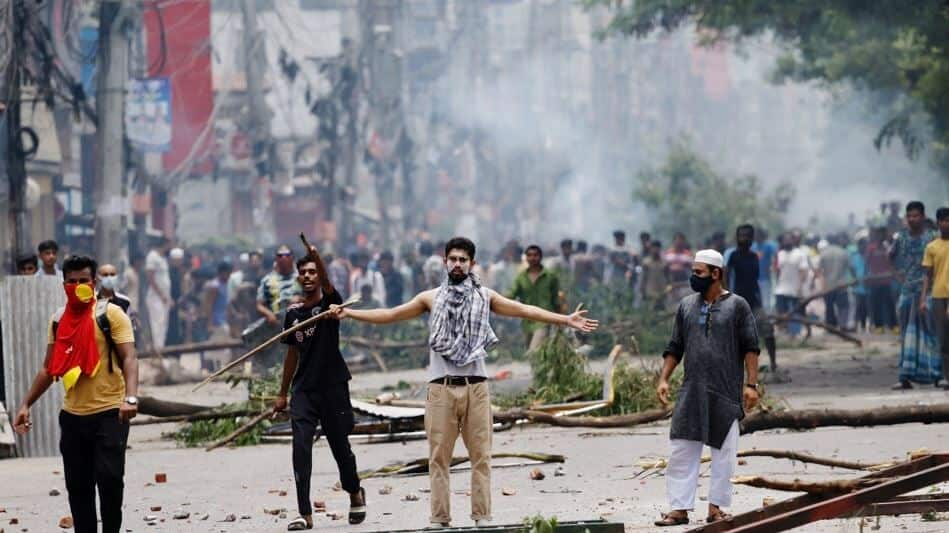
Bangladesh police given 'shoot-on-sight' orders amid national curfew
What's the story
Bangladesh police have been given "shoot-on-sight" orders amid ongoing student-led protests, which have resulted in over 130 deaths. The curfew, imposed at midnight on Friday, was expected to remain until Sunday morning as police attempted to contain the rapidly deteriorating security situation, with soldiers patrolling the streets. The curfew was temporarily eased on Saturday afternoon to allow residents to run necessary errands, but otherwise, people were told to stay at home, and all meetings and protests were banned.
Context
Why does this story matter?
Cities across Bangladesh have been rocked by violent protests since last month. The unrest was triggered by the government's decision to reserve up to 30% of government jobs for relatives of veterans from the country's 1971 war of independence against Pakistan. This quota system was abolished in 2018 but was reinstated last month by a court order declaring its abolition illegal. Last week, the Supreme Court suspended the high court's order for four weeks, but the student protests continued.
Strict measures
Curfew and internet shutdown enforced amid rising unrest
The government has also imposed a communications embargo, which has resulted in the complete blockage of internet and social media access since Thursday night. Major newspapers, including the Dhaka Tribune and Daily Star, have been unable to update their social media platforms due to this shutdown. There were also reports that some key government websites, including Bangladesh's central bank and the prime minister's office, appeared to have been hacked and defaced.
Rising casualties
Violence impacts students and journalists, schools shut down
This week, the protests have expanded beyond the confines of the campus and have evolved into a more extensive movement against the Sheikh Hasina government, which has been in power since 2009. Thousands have been injured in the protests, with police firing being the cause of at least two-thirds of deaths reported so far. Shafkat Mahmud, 28, a student protester from Dhaka's Uttara neighborhood, said that this was no longer just a student demonstration, but one similar to "civil war."
Global concerns
International response to Bangladesh unrest intensifies
In light of the unrest, the US State Department has warned Americans not to travel to Bangladesh and announced plans to begin removing some diplomats and their families from the country. Similarly, nearly 1,000 Indian students have returned to India from Bangladesh through various land transit points or by flight. The Indian High Commission is in regular contact with more than 4,000 students still in various universities across Bangladesh.